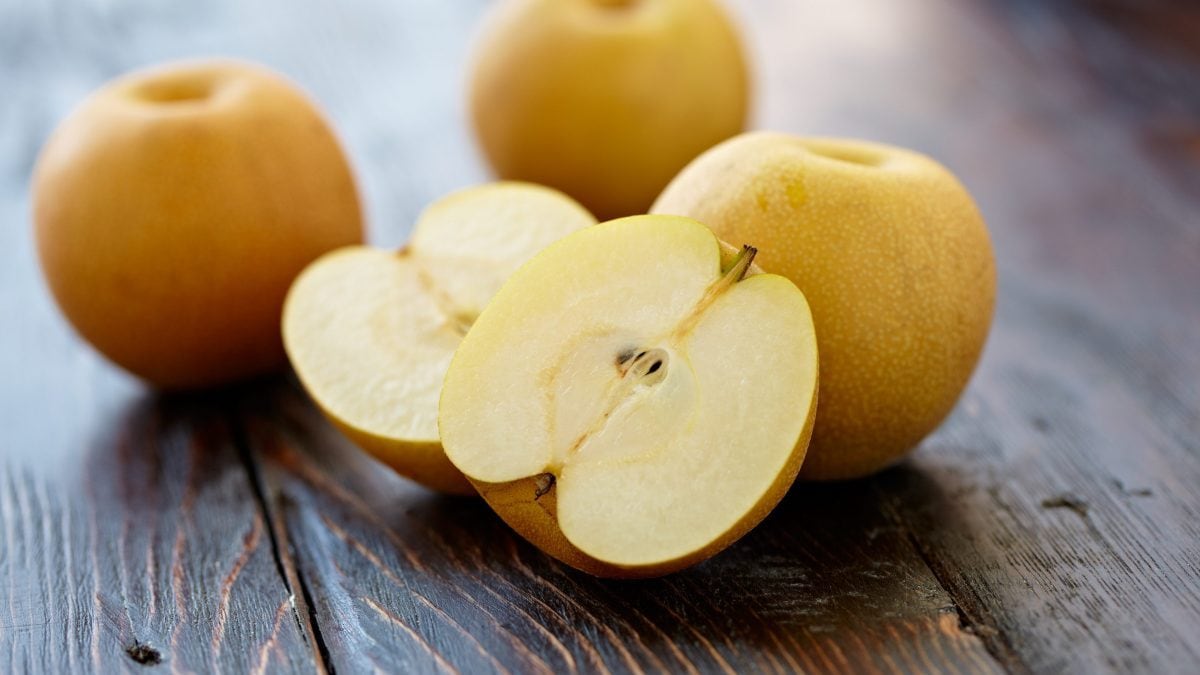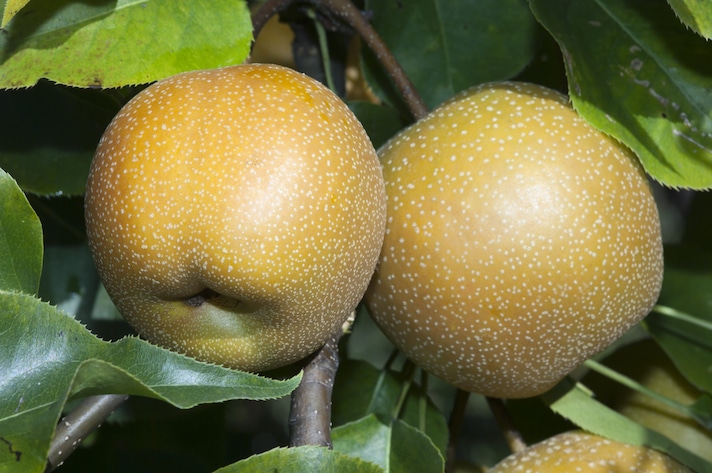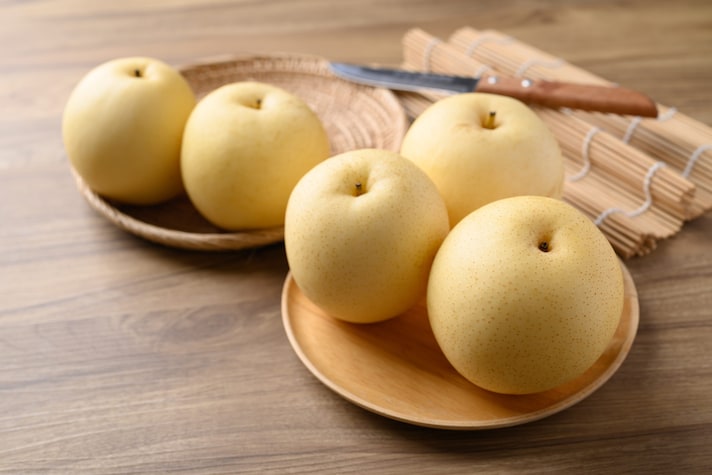
"It's not an apple. It's not a pear. It only tastes like what it's not." Perhaps the quote wasn't exactly true, but the nashi is a sort of Balto of the fruit and vegetable world: halfway between the two fruits, it's a little gem that comes directly from the East and is slowly making its way into American markets too.
A Little Bit Apple and A Little Bit Pear
Round, firm, with a slightly grainy texture: some might say we're talking about apples, but in reality we're talking about a pear, or rather, a nashi pear. Pyrus pyrifolia, the scientific name for this fruit, is considered a sort of Chinese cousin of our pear and, for this reason, is also called apple pear, Asian pear, or Chinese apple. It originates from central China, but over time it has also found fertile ground in some Eastern countries, such as Japan and Korea.
Belonging to the Rosaceae family (the same as apples and pears), it has a sweet, refreshing flavor and a skin that can range from yellow to green, with small lenticels (dots), and is very thin in some varieties. Although native to Eastern countries, this fruit has also made its way to America and Europe. Many people don't know this, but nashi can also be found in the U.S., where it is grown particularly in the parts of California, Washington and Oregon.

Nashi's Benefits
It's not just a very interesting food, but also a fruit with numerous beneficial properties: rich in water and fiber, nashi helps keep the body hydrated and aids digestion. It contains a high amount of vitamins —such as C and E—and minerals, such as potassium and magnesium, essential for supporting the immune system and contributing to bone and muscle health. Furthermore, research conducted by teams of experts has highlighted the antioxidant properties of nashi, capable of protecting cells from oxidative stress, and anti-inflammatory properties that can counteract the processes that lead to premature aging.
Much More Than Just a Fruit: Symbolic Values in Eastern Countries
In the East, things can often have a hidden meaning or take on a symbolic value, and the nashi is no exception. In China, its country of origin, it is considered a fruit symbolizing wisdom, renewal, and purity, but, at the same time, it also has a negative connotation: the expression "to share a pear" in Chinese sounds very similar to the verb "to separate." For this reason, people never ask someone to share a pear, as it could be seen as a harbinger of an imminent breakdown in relationships. The situation is different in Korea, where the nashi is offered as a gift as a sign of recognition and gratitude: this is why it is considered a highly appreciated gift at formal events or on special occasions. In Japan, too, this fruit represents a gesture of respect towards the host, and not only that: planting a nashi tree is said to help ward off evil spirits.

;Resize,width=767;)
